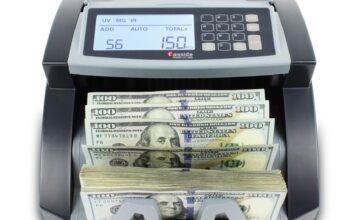Oh, and before we get too deep into this, regardless of which asset you’re invested in, I still recommend Personal Capital. Their free software automatically tracks the performance of your income-producing assets, including monthly income, annual return, and even free fee analysis. beat one, easy to use dashboard.
The result? Your investment tracking becomes almost as easy as the cash you’re getting from all of your income-producing assets.
1. Savings Accounts or market Savings Accounts
Probably the foremost basic income-producing asset within the world, and also one among the smallest amount profitable.
While these two both pay slightly higher interest rates than a daily ‘ole bank account, you’re still gonna be hard-pressed to form any meaningful income from these ultra-safe choices.
Unfortunately, most people never get past this stage in their investment journey. Of course, we’re just getting started.
Click here for Hult private capital
2. Certificate of Deposits (CDs)
No, not those antique silver disks. (Yes, you’re getting old!)
Certificate of Deposits are like savings accounts, except your bank won’t allow you to access your money for a particular amount of your time without incurring a penalty.
Banks like CDs because they get to stay and use your money for an extended amount of your time, without having to carry your cash available just in case you get a wild hair to shop for the newest infomercial special. you wish CDs because they pay higher interest rates than take advantage of a bank account.
A 6-month, $500 CD paying 5% interest was actually my first investment ever. Man, did I desire the good 16-year-old around with my “retirement account?” I’ll always remember that intoxicating feeling of getting paid money simply because I had money. What a rush!
Welcome to the planet of investing, little Money Wiz.
In today’s low rate of interest environment, you’re lucky to seek out a CD paying any longer than about 2%. And while you would possibly not even beat inflation at those rates, CDs are FDIC insured up to $250,000, so they’re harmless.
3. Interest Paying Bonds
Bonds are basically IOUs from businesses to investors. You invest a hard and fast amount into a bond, and therefore the company agrees to pay you a particular percentage back.
Of course, this is often a simplification. you’ll purchase bonds from all kinds of entities, including:
Companies (aka Corporate Bonds)
Large, stable companies (Investment Grade Corporate Bonds)
Small, ultra-risky companies (Junk Bonds)
The federal (Treasury Bills)
Sections of the federal (Agency Bonds)
State and native governments (Municipal Bonds)
Foreign companies or governments (Foreign Bonds)
Interest rates obviously vary significantly, counting on your sort of bond and therefore the current rate of interest environment. But generally , you’ll expect bonds to yield anywhere from 1-4%.
4. Dividend Paying Stocks
Now we’re going to something with real wealth-building power!
When you purchase stocks, many of these companies disburse some of the earnings to shareholders on a daily schedule. These are called dividends, and ooh-wee… let me tell you – There are few things more exhilarating than an enormous fat ask your name thereon, courtesy of your stock exchange investments.
Typically, dividend-paying stocks are the larger, skilled companies. In fact, there’s an entire set of stock exchange darlings referred to as “The Dividend Aristocrats” who have earned their title by increasing dividend payouts for 25 consecutive years or more. (Currently, Proctor & Gamble and Dover Corp. are neck and neck, with 61 and 62 years straight years (!!) of dividend increases, respectively.)
The percentage rate of dividends varies by company. If you’re an investor in Ecolab, you’re currently watching a 1.12% dividend rate. If you felt like juicing up those dividend yields, you’ll always move some money to a corporation like AT&T, whose annual dividend yield is 6.05% immediately.
Click here for Hult private capital




